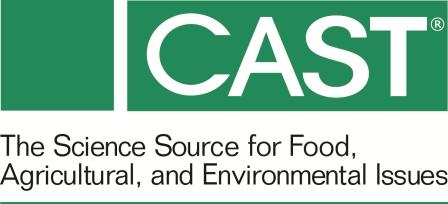 A rogue beaver is
building a dam on the tile-fed creek that dissects my folks' farm, so that
means winter's ice is gone and springtime work is imminent. For our extended
family, planting season starts with a strategy session around the kitchen
table. My brother talks about prepping his aging 16-row planter and complains
about the price of seed corn. "Maybe I could buy one of those new machines
with auto-steer guidance and monitoring components to measure seed drop. Before
long, farmers will be controlling it all with smartphone apps while they sip
coffee in the kitchen."
A rogue beaver is
building a dam on the tile-fed creek that dissects my folks' farm, so that
means winter's ice is gone and springtime work is imminent. For our extended
family, planting season starts with a strategy session around the kitchen
table. My brother talks about prepping his aging 16-row planter and complains
about the price of seed corn. "Maybe I could buy one of those new machines
with auto-steer guidance and monitoring components to measure seed drop. Before
long, farmers will be controlling it all with smartphone apps while they sip
coffee in the kitchen."
My nephew injects a few
statistics to temper his pipe dream. "Yeah, if you have $250,000 lying
around, you can upgrade to 24 rows with 4 monitors, including an iPad to adjust
seed placement. Farmers who keep running to the last light can plant 500 acres
a day by themselves." I start envisioning luxury tractor cabs with home
entertainment systems and planters that look like battle machines out of a Star
Wars movie.
Dad brings us down to earth
with a dose of back-in-the-day information. He has lived on the
same slice of Iowa land for 90 planting seasons, so he has a deeper wikihistory page to pull from. "One man in bib overalls with a good team of horses
could plant 20 acres of corn a day back in the 1920s. Of course nobody would have
mentioned high tech or comfort. My dad ran a team of horses led by an old mare
that liked to lie down for a nap in the heat of the afternoon."
According
to him, high tech was a bit more low to the ground in those days. "You
mention seed drop. A farmer from Burg told me they used to check how the
alfalfa spreader was doing by counting the number of seeds in a horse's
footprint. And the original 40-inch rows for cornfields were set that
way to accommodate the width of a horse's ass." I assume Dad meant the
animal, not the farmer.
Apparently, it could be risky as well as strenuous in those days. "Farmers used to
stretch planter wire the length of the field, follow it along, and button in a
seed every forty inches. At the end, they’d move the wires and start again. A lightning strike on the wire could
kill a horse, mule, or man."
Horses or high tech, I've
been off the farm since college days--and even when I was a teenager, Dad kept
me away from the planter. "You showed more interest in that old '56 Chevy
than you did in farm machinery, and we didn't need a cornfield planted like a tourist maze." He's a wise man. But I am
still part of the spring planting campaign, thanks to the garden my other
brother and I maintain on the home place. We're both "city boys"
since we live in nearby small towns, and aside from a few basic farm tasks, we
get our hands dirty in a patch of ground near the old barn.
With a much smaller
budget in mind, we do our own seed and equipment "strategizing." We
note that last year's spinach has popped up as a stunted volunteer
crop--more as a tease for spring than a salad ingredient,
but it gets us discussing our selection for this year. The usual suspects--lettuce,
carrots, tomatoes, peppers, and more. My brother suggests we try some new ones—bak
choy, cauliflower, and maybe brussels sprouts. I force kale into the
conversation, even though he refuses to acknowledge its existence.
Other family members tolerate
our chatter but soon come to a consensus: “Plant whatever veggies you want, but
see if you can get them to emerge from the ground with slices of bacon wrapped
around them.” I don’t think they take us seriously.
Whether a thousand acres
of corn and soybeans or a backyard plot of lettuce and tomatoes, it’s the
optimism of spring planting time that counts. As Robert Louis Stevenson said, “Don’t
judge each day by the harvest you reap but by the seeds you plant.”
Note: Two recent CAST publications contain science-based information about crop production, and they can be accessed free of charge: (1) Crop Protection Contributions toward Agricultural Productivity, and (2) Plant Breeding and Genetics.
by dan gogerty (top two pics from halderman.com and bottom pic from libraryofcongress)













